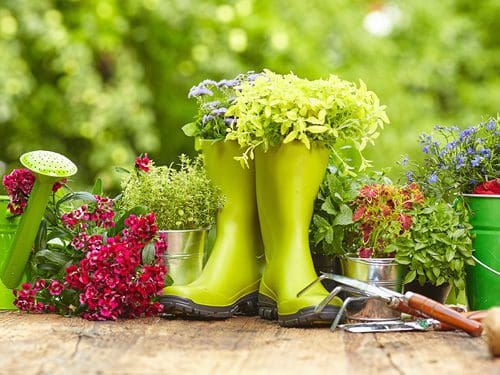Did you know that gardening helps to reduce stress, improves self-confidence, and eases depression?
You don’t even have to have a big backyard or a green thumb to reap the many benefits of gardening. Whether you grow flowers, herbs, fruits, or vegetables, the beneficial effects will be the same.
A quote from Essentials Definitions of Gardeners and Gardening, compiled by Michael P. Garofalo, M.S., called “Gardening – Therapy for Mind, Body and Soul” from the Proxima Health System in Atlanta, explains the impact of plants in this way:
“Why do plants have such a positive impact on us? There are a number of reasons including:
- They have a predictable cycle of life that provides comfort in our time of rapid change.
- They are responsive but non-threatening.
- They form no opinions or judgment about their caregivers.
- They soften our man-made environment.
- They enable us to change or improve our environment.
- They promote relaxation and tranquility.”
The Benefits of Gardening
Studies have shown that spending time in nature has a healing effect on the brain. Watching the ocean waves, walking in the woods, or planting a flower makes us feel good while lowering blood pressure and reducing stress levels. For an individual suffering from a drug or alcohol addiction, gardening provides a way to spend time outside, get exercise, and promote feelings of well-being. It is an enjoyable and meaningful activity that provides a feeling of purpose and helps to develop a balanced lifestyle.
Gardening benefits people emotionally, socially, physically, and spiritually. Just looking at a garden can calm a person, reduce their stress, and recharge their mind. Physically, gardening promotes hand-eye coordination, challenges balance and strength, and improves range of motion and endurance.
Additional benefits of gardening include:
- Improved concentration and enhanced mental functions
- Increased self-esteem and a higher achievement of goals
- Decreased depression and anxiety
- An overall improvement in mood
- A greater sense of control
- Improved immune response
- Lower heart rate
When a person is recovering from a substance abuse addiction, they need to fill the void that is left from cutting off contact with old friends who encouraged destructive habits. For many people, gardening becomes a new hobby that creates a passion for spending time in nature.
Horticultural Therapy
Because of its many therapeutic benefits, gardening to promote well-being is rapidly becoming an established form of therapy. According to the Canadian Horticultural Therapy Association (CHTA), “Horticultural therapy uses plants and the natural world to improve the social, spiritual, physical, and emotional well-being of individuals who participate in it.”
Many people think of gardening as planting flowers or vegetables in their backyard. But, there are many other ways people can garden if they don’t have a yard. Here are some ideas for other types of gardens:
- If you live in the city, there may be a community garden you can join. A community garden is a shared green space where members plant flowers and vegetables. Members share the results of their work and have the chance to meet other people that share their passion for gardening.
- Create a vertical garden or a living wall.
- Plant houseplants.
- Make an herb garden on a windowsill.
- If you have a balcony, plant a container garden.
- Ask if you are allowed to plant a garden on the roof.
Choosing the Right Substance Abuse Program
Sowing a seed and watching the plant grow strong over time provides many rewards. Gardening can also be seen as a parallel to the slow and careful journey a person with an addiction travels on the path to their recovery.
Choosing the right substance abuse treatment program is essential for long-term sobriety. Residents at Canyon Vista are provided with a full continuum of care that combines traditional and holistic therapies, nutritional guidance, life skills, and family healing to build the skills to live a healthy and sober life. Contact us today to learn more.





